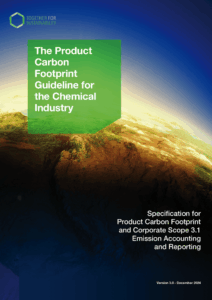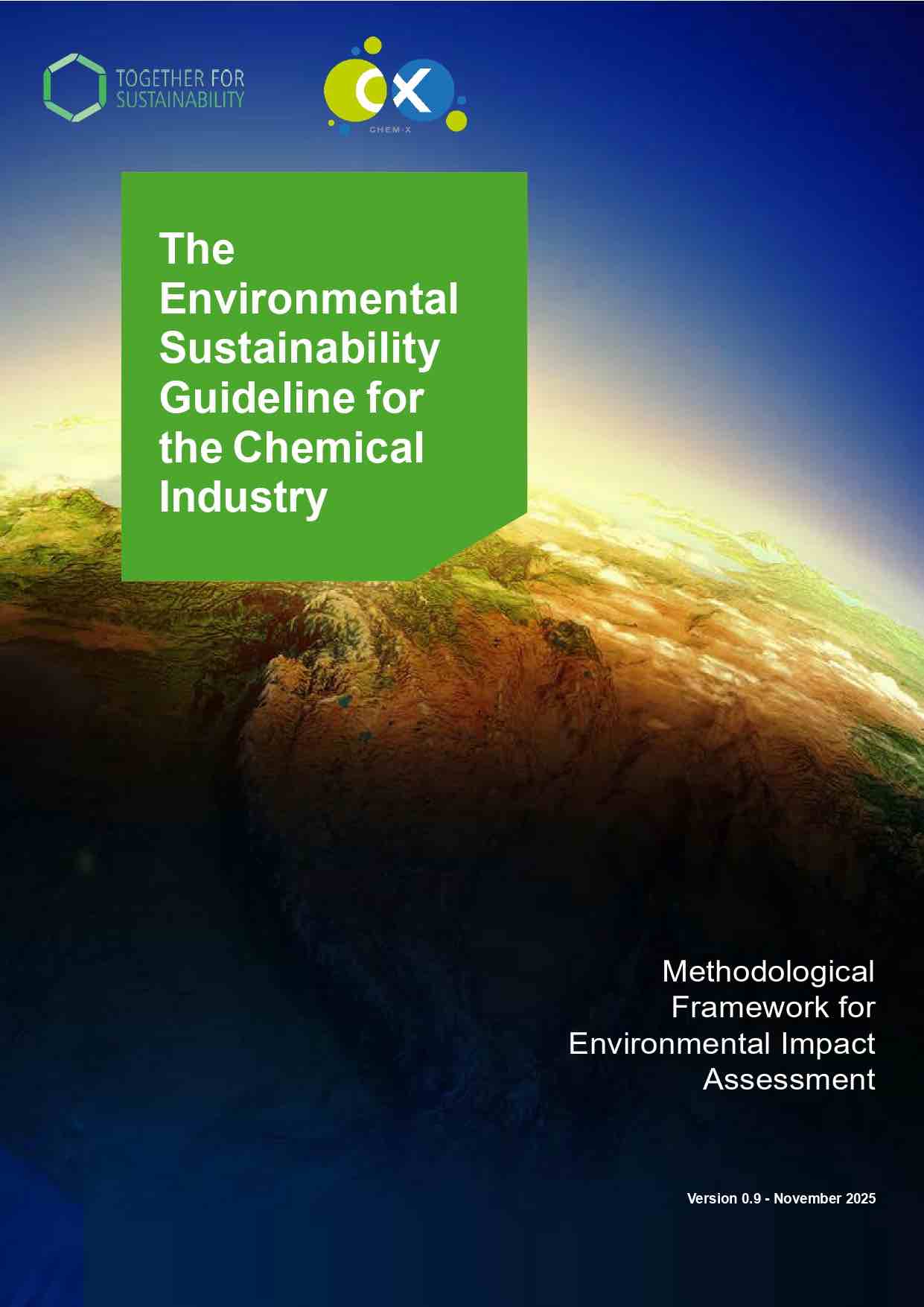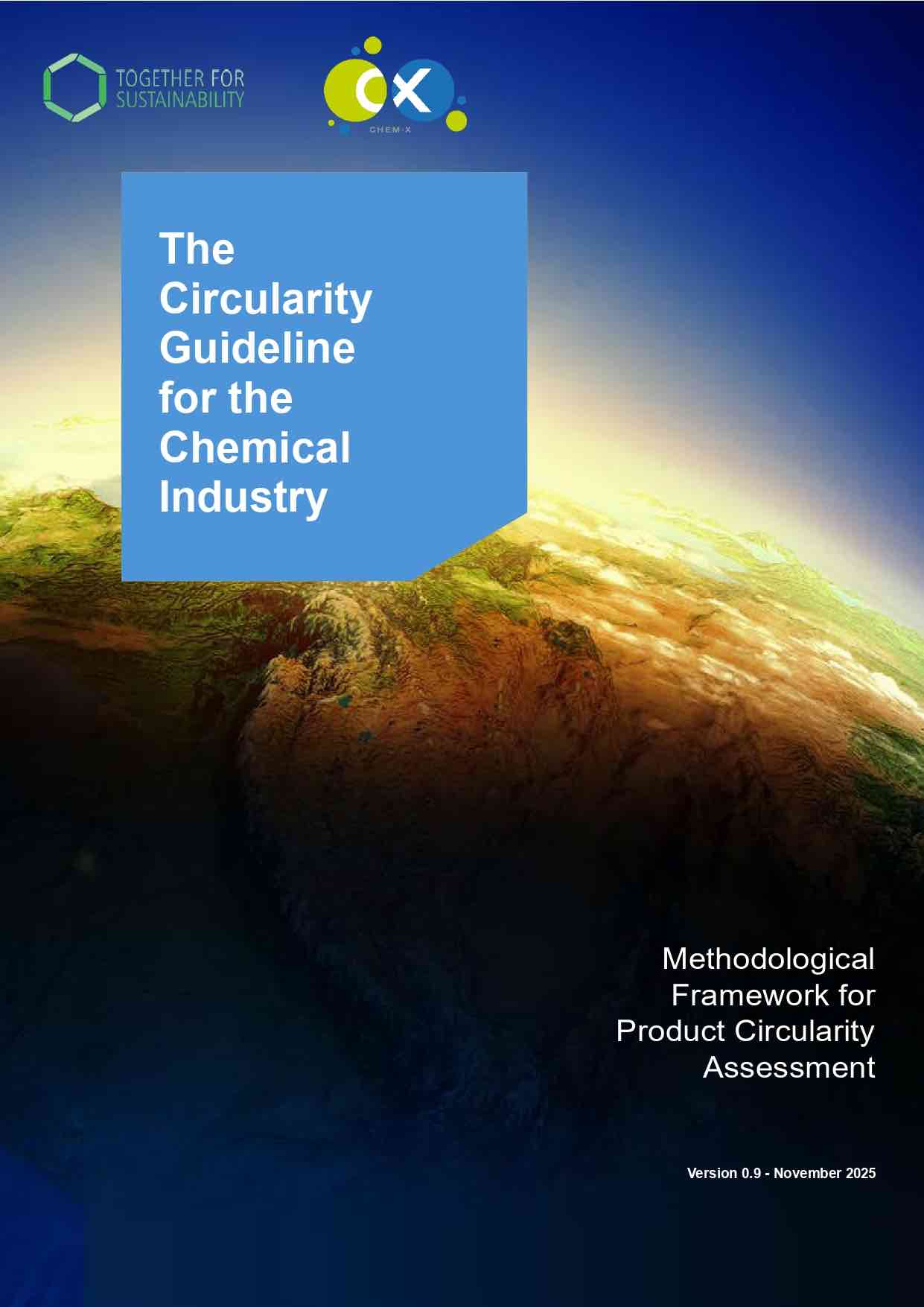This page outlines TfS’s collaboration with the Chem-X consortium for the development of key Sustainability and Circularity guidelines contributing to the Digital Material Passport (DMP) for chemical products.

Sustainability, Circularity, Chemistry DMP
Content guidelines as foundation for a chemistry Digital Material Passport (DMP)


What is Sustainability and Circularity in Chemicals?
Sustainability and circularity are essential for the future of the chemical industry.
By minimising environmental impact, using resources responsibly, and keeping materials in circulation through recycling and reuse, companies are shifting from linear to circular models, reducing the impact to the environment, and increasing supply chain resilience.
Driven by evolving European legislation and market expectations, this transition strengthens climate action, resource security, and long-term competitiveness across the sector.
Chem-X and Digital Material Passport for chemical products
Chem-X is the key to a transparent and circular chemical industry. With Chem-X, we want to address the need for a seamless exchange of product information in the value chain across industries. Thereby, we want to enable compliance with different regulatory requirements, support circular business models and increase competitiveness.
Within the chemical industry, we want to help companies creating a Digital Material Passport (DMP). DMP captures information on chemicals which constitute a final product that is regulatory required to have a Digital Product Passport (DPP).
To lay the foundations for a chemistry DMP, we have been working on six guidelines in which we summarise our common understanding of methodological frameworks, metrics, terminology, and review existing implementations. The guidelines address key topics: business and material identity, circularity and sustainability, material declaration, and verification. The guidelines will be used alongside the information models as prerequisite to develop DMP models.
TfS collaboration with the Chem-X consortium
TfS is an associate partner in the Chem-X consortium, which is developing the DMP for chemical products.
Through its role in the Chem-X consortium, TfS contributes to the development of the “content layer” of the DMP — establishing which sustainability and circularity data should be included and how it is calculated. To achieve this, TfS collaborates with the Chem-X consortium for the development of the Sustainability and Circularity guidelines contributing to the DMP for chemical products.
Discover more
The content guidelines for the chemistry DMP
The consultation comprises the following 6 guidelines, tailored for the chemical industry. Please note that the guidelines are working documents. We will continue to develop the guidelines and add further content (e.g. additional metrics).
Sustainability Guideline
Provides a methodological framework for assessing the environmental impacts of chemical products. The guideline covers the following metrics:
- Product carbon footprint (TfS PCF Guideline 3.0)
- Resource use fossil
- Acidification potential
- Water use (water scarcity)
- Ozone depletion potential
- Photochemical ozone creation potential
Circularity Guideline
Defines harmonised metrics for measuring circularity in chemical products. The guideline covers:
- Bio/ Renewable/ Recycled/ Reuse content metrics definitions and formulas
- Chain of custody definitions and indicators
Chem-X is also developing the following guidelines for the DMP of chemical products:
- Business Identity
- Material ID and Data Chain
- Verification
- Material Product Declaration
To access those guidelines please consult www.chem-x.de
TfS Scope 3 GHG Methodology

The Sustainability and Circularity Guidelines build on the TfS Scope 3 GHG methodology (Product Carbon Footprint Guideline), extending the scope beyond carbon emissions to include additional environmental and circularity metrics.
This integrated framework enables companies to assess and report broader sustainability and circularity performance for chemical products.
Guideline Writing Process
TfS is committed to transparency and stakeholder engagement.
Currently, the guidelines are at their version 1.0. The Chem-X consortium and TfS are currently working on the guidelines to have additional metrics and details. We invite public feedback to ensure the inclusion of a wide range of perspectives. The broad consent collected will support future adaptations, maximising value for all stakeholders. To submit your feedback, use this e-mail: info@chem-x.de



